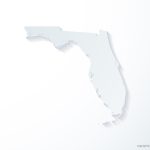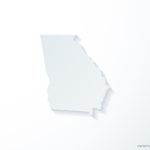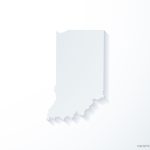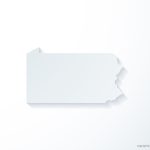Eastern Region
Click on each state’s name to navigate to related summaries.














WASHINGTON D.C.
WASHINGTON D.C.
- Recording of Law Enforcement Activity
- DC Metropolitan Police General Order 304.19(I) states that “[t]he Metropolitan Police Department (MPD) recognizes that members of the general public have a First Amendment right to video record, photograph, and/or audio record MPD members while MPD members are conducting official business or while acting in an official capacity in any public space, unless such recordings interfere with police activity.” The policy clarifies that members of the public have the same right to record as news media, and that police cannot block, threaten, or intimidate recorders.
- Media Relations
- DC Metropolitan Police General Order 204.1(II) states that “[t]he policy of the Metropolitan Police Department is that members shall make available to the news media timely information pertaining to matters within the scope of the Department, except in those rare instances where the law enforcement process or fair administration of justice might be hampered by premature disclosure of such information. In releasing information to the media, the Department shall also be sensitive to the victims of crimes and their families.” The policy continues to outline the type of information that shall be released to the media, who shall release it, and the timing and medium of the releases. General Order 204.1(V)(D) provides that perimeters at crime scenes shall “provide members of the news media with maximum access to the scene, without disrupting Department operations or endangering a member of the media or any other person.”
- Arrest Avoidance Procedures
- Issue not addressed in reviewed policies.
- Dispersal Order Exemptions
- The Standard Operating Procedure on handling First Amendment Assemblies § 5-331.14 addresses police-media relations during First Amendment demonstrations, stating, “[t]he MPD shall allow media representatives reasonable access to all areas where a First Amendment assembly is occurring. At a minimum, the MPD shall allow media representatives no less access than that enjoyed by members of the general public and, consistent with public safety considerations, shall allow media representatives access to promote public knowledge of the assembly.” However, the policy does not address exemptions do dispersal orders.
- Curfew Exemptions
- Issue not addressed in reviewed policies.
- Equipment Search/Seizure Protections
- DC Metropolitan Police General Order 304.19(II)(E) provides that, absent consent or a search warrant, a supervisor must determine that there are exigent circumstances to justify a warrantless seizure of a media device where there is probable cause that evidence of a crime would be found. Subsection (F) requires a search warrant before viewing media on a seized device, absent exigent circumstances, and subsection (G) prevents police from deleting any information on seized or voluntarily turned over devices.
- Right to Carry Media Equipment
- The Standard Operating Procedure on handling First Amendment Assemblies § 5-331.14(c)(3) states that “[t]he MPD shall make reasonable accommodations to allow media representatives effectively to use photographic, video, or other equipment relating to their reporting of a First Amendment assembly.”
FLORIDA
JACKSONVILLE, FL
There are no written policies for this jurisdiction that fall under any of the Policing Project’s seven categories.
MIAMI, FL
- Recording of Law Enforcement Activity
- The Miami Police Department expressly recognizes a right to record police in public and specifically at protests. Miami Police Department Departmental Orders 15.1 provides that “[t]he right to record is not limited to traditionally public spaces, sidewalks, streets and locations of public protests, but also includes any private property to include the individual’s home or other private property where an individual has a right to be present.” Members of the media are treated the same as the general public, and thus no individual is required to display press credentials in order to observe, photograph, or record police activity in public. Officers are also prohibited from ordering individuals to stop recording, demanding to see identification, demanding a reason for the recording, detaining the person, intentionally obstructing the recording, or damaging the recording equipment. Id.
- Media Relations
- Issue not addressed in reviewed policies.
- Arrest Avoidance Procedures
- The Miami Police Department makes clear that the act of making a video recording of any police activity that occurs in a public space is not a criminal offense and does not constitute probable cause for arrest. MPD Departmental Orders 15.5.3.
- Dispersal Order Exemptions
- Issue not addressed in reviewed policies.
- Curfew Exemptions
- Issue not addressed in reviewed policies.
- Equipment Search/Seizure Protections
- The Miami Police Department states that the seizure of any video recording must be in conformance with the principles of the Fourth and Fourteenth Amendment. Video Recording of Police Activity. MPD Departmental Orders 15.1.
- Right to Carry Media Equipment
- Issue not addressed in reviewed policies.
MIAMI-DADE, FL
- Recording of Law Enforcement Activity
- The Miami-Dade Police Department expressly recognizes a right to record police in public. The handbook states: “The First Amendment to the United States Constitution provides the basis for the public’s right to record law enforcement officers while performing their duties … Therefore, peaceful recording by citizens in a public space that does not interfere with the officer’s performance of their duties, is lawful and permitted.” Miami-Dade Law Enforcement Handbook (2014).
- Media Relations
- Issue not addressed in reviewed policies.
- Arrest Avoidance Procedures
- Issue not addressed in reviewed policies
- Dispersal Order Exemptions
- Issue not addressed in reviewed policies.
- Curfew Exemptions
- Issue not addressed in reviewed policies.
- Equipment Search/Seizure Protections
- Issue not addressed in reviewed policies.
- Right to Carry Media Equipment
- Issue not addressed in reviewed policies.
ORLANDO, FL
- Recording of Law Enforcement Activity
- “The Orlando Police Department (OPD) recognizes that members of the general public have a First Amendment right to record and photograph OPD members while conducting official business while acting in an official capacity in any public space, unless such recordings interfere with police activity.” Orlando Police Department Written Directive 14-03. Their Training Bulletin also states that “a citizen may make an audio or video/audio recording of an encounter with a law enforcement officer, even over the officer’s objections, assuming that the act of recording does not itself involve behavior that constitutes obstruction or interference with the officer’s lawful duty.” The Police Department also has multiple policies that go into detail about the right to record.
- Media Relations
- The Orlando Police Department has policies regarding the release of information to the media, media access to police-controlled scenes, and media credentials with a goal of providing a “free flow of information to the public.” OPD Policy & Procedure 2304.1. The policy states that “[r]epresentatives of the news media will be permitted to operate at the scene of a natural or man-made disaster or potential disaster, or any other potentially dangerous area, provided such operation does not interfere with the police function or endanger the safety of police officers or citizens.” Id.
- Arrest Avoidance Procedures
- Issue not addressed in reviewed policies
- Dispersal Order Exemptions
- Issue not addressed in reviewed policies.
- Curfew Exemptions
- Media are exempt from curfew orders. Fl. Code of Ordinances Sec. 43A.04. – Emergency Measures.
- Equipment Search/Seizure Protections
- The Orlando Police Department Training Bulletin states: “If a citizen records or photographs an officer while the officer is working in a public place, the officer cannot seize the recording device, erase or remove the photo or recording, or compel the person to stop.” The department also has a robust training bulletin explaining the circumstances when media devices can and cannot be searched or seized. TB 1310.0.
- Right to Carry Media Equipment
- Issue not addressed in reviewed policies.
TAMPA, FL
- Recording of Law Enforcement Activity
- Issue not addressed in reviewed policies.
- Media Relations
- The Tampa police department has policies in place regarding release of information to the media. The guidelines state that media at the scene of an incident should be referred to a scene supervisor. TPD Standard Operating Orders 540.
- Arrest Avoidance Procedures
- Issue not addressed in reviewed policies
- Dispersal Order Exemptions
- Issue not addressed in reviewed policies.
- Curfew Exemptions
- Issue not addressed in reviewed policies.
- Equipment Search/Seizure Protections
- Issue not addressed in reviewed policies.
- Right to Carry Media Equipment
- Issue not addressed in reviewed policies.
GEORGIA
ATLANTA, GA
- Recording of Law Enforcement Activity
- The City of Atlanta expressly recognizes a right to record police in public. The policy states: “The City of Atlanta shall prohibit Atlanta police officers from interfering in any way with a citizen’s right to make video, audio, or photographic recordings of police activity, as long as such recording does not physically interfere with the performance of an officer’s duty.” ADP-2010 reforms Calhoun v. Pennington. Further, the Atlanta Police Department has policies prohibiting police from deleting any recordings of police officers. Atlanta SOP, General Conduct 4.4.2-3.
- Media Relations
- The Atlanta Police Department has a Public Affairs Unit (PAU) that is in charge of media relations. They are responsible for “assisting news media personnel in covering stories at the scenes of incidents as they pertain to public safety; being available for on-call responses to the news media; coordinating and authorizing the release of information about victims, witnesses and suspects; and coordinating and authorizing the release of information concerning confidential investigations and operations as directed by the Chief of Police.” Atlanta SOP, Public Affairs 4.4.1.
- Arrest Avoidance Procedures
- The Atlanta Police Department Policy Manual states: “In the event that a media representative acting in his or her professional capacity is arrested, the PAU [Public Affairs Unit] must be immediately notified.” Atlanta SOP, Public Affairs 4.2.2.
- Dispersal Order Exemptions
- Issue not addressed in reviewed policies.
- Curfew Exemptions
- Issue not addressed in reviewed policies.
- Equipment Search/Seizure Protections
- Issue not addressed in reviewed policies.
- Right to Carry Media Equipment
- Issue not addressed in reviewed policies.
DEKALB COUNTY, GA
- Recording of Law Enforcement Activity
- The DeKalb County Police Department does not expressly recognize a right to record police in public. However, the department does issue media credentials. While the credentials “do not entitle the holder to special privileges … [m]embers of the Department will extend all reasonable assistance and cooperation to holders of press identification cards who are engaged in their news gathering duties.” Dekalb Employee Manual 4-1.17(H) (June 12, 2020).
- Media Relations
- DeKalb County Police Department allows media with valid credentials to enter areas of serious incidents or crime scenes. The employee manual states that news media representatives should be able to enter these areas, gather information, and take photos. Dekalb Employee Manual 4-1.16 (June 12, 2020).
- Arrest Avoidance Procedures
- Issue not addressed in reviewed policies.
- Dispersal Order Exemptions
- The DeKalb County Police Department manual states: “In the event of a major incident, crime or disaster, police lines will be established for crowd control and to preserve evidence. Dependent upon the tactical situation or the likelihood of jeopardizing Department operations related to investigating and collecting evidence, members of the news media may be allowed to enter these areas when possessing current news media credentials.” Dekalb Employee Manual 4-1.16(A) (June 12, 2020).
- Curfew Exemptions
- Issue not addressed in reviewed policies.
- Equipment Search/Seizure Protections
- Issue not addressed in reviewed policies.
- Right to Carry Media Equipment
- Issue not addressed in reviewed policies.
INDIANA
INDIANAPOLIS, IN
- Recording of Law Enforcement Activity
- Issue not addressed in reviewed policies.
- Media Relations
- Issue not addressed in reviewed policies.
- Arrest Avoidance Procedures
- Issue not addressed in reviewed policies.
- Dispersal Order Exemptions
- Issue not directly addressed in reviewed policies, but state law provides for the issuance of a dispersal order without a press carveout. If there is an unlawful assembly, a civil officer or law enforcement officer may give a dispersal order. They do not have to issue a dispersal order if it would put the individual at risk of death or great bodily harm or the unlawful assembly is in the process of committing a felony or is causing violence to property or another person. No protections or exemptions provided for the media or members of the press. Indiana Code 10-16-7-11.
- Curfew Exemptions
- Issue not addressed in reviewed policies.
- Equipment Search/Seizure Protections
- Issue not addressed in reviewed policies.
- Right to Carry Media Equipment
- Issue not addressed in reviewed policies.
KENTUCKY
LOUISVILLE, KY
- Recording of Law Enforcement Activity
- Issue not addressed in reviewed policies.
- Media Relations
- Louisville had enacted procedures that dictate media access to crime scenes, emergencies, natural disasters etc. KACP 20.2-3(a-b). Before speaking to media at crime scenes, the commanding officer must first speak with the Media and Public Relations Office (MPRO). KACP 20.1 (3.3.2). Officers are prohibited from speaking out against department policy and from directly contacting media about official police matters id. All written articles, videotables, and audio files of officers must pass through the MPRO prior to being given to media id. There is also a procedure for officer shootings in which within 24 hours the MPRO will share the names of the members involved and provide an update within 72 hours covering; the investigative process, units involved, and timeline.
- Arrest Avoidance Procedures
- Issue not addressed in reviewed policies.
- Dispersal Order Exemptions
- Issue not addressed in reviewed policies.
- Curfew Exemptions
- Issue not addressed in reviewed policies.
- Equipment Search/Seizure Protections
- Issue not addressed in reviewed policies.
- Right to Carry Media Equipment
- Issue not addressed in reviewed policies.
MASSACHUSETTS
BOSTON, MA
- Recording of Law Enforcement Activity
- Issue not addressed in reviewed policies. However, Section 7 of the Release of Official Information policy (Rule 300 of the Boston Police Department Rules and Procedures; “Policy”) states that “[n]ewspersons may photograph or report anything they observe at an emergency scene,” but it is unclear whether this applies to video or audio recording of law enforcement activity more generally.
- Media Relations
- Section 2 of the Policy states that the Office of Media Relations “provide[s] information and updates to the media at major incident scenes, prepares and distributes news releases, coordinates and assists at news conferences, coordinates and authorizes the release of information about victims, witnesses and suspects, assists in crisis situations within the agency and coordinates the release of authorized information.” Sections 7 and 8 of the Policy address media access to crime scenes, emergency scenes, and major events where police lines have been established. The Policy also details the contours of information that the department may not release (Section 4), information which the department may release contemporaneous with an incident or with the approval of the OMR (Section 5), and the release of routine information (Section 10). Section 11 of the Policy addresses media and public requests for interviews of law enforcement.
- Arrest Avoidance Procedures
- Section 7 of the Release of Official Information Policy requires that “[i]n the event of a conflict with news organization members, officers shall immediately advise a supervisor to notify the OMR. Officers shall not, however, interfere with or obstruct news media personnel as long as their activities remain within the confines of the law. Any violations of this procedure should be immediately reported to the OMR.”
- Dispersal Order Exemptions
- Issue not addressed in reviewed policies. However, Section 8 of the Policy states that the department’s general policy, with certain exceptions, is to allow credentialed newspersons into areas normally closed to the public by police lines.
- Curfew Exemptions
- Issue not addressed in reviewed policies.
- Equipment Search/Seizure Protections
- Issue not addressed in reviewed policies.
- Right to Carry Media Equipment
- Section 7 of the Policy states that, “[o]n public streets, news photographers and their equipment have the right to be free from assaults and unnecessary interference or obstruction while engaged in the lawful performance of their duties at the scene of a crime or other major event.”
MARYLAND
PRINCE GEORGE’S COUNTY, MD
- Recording of Law Enforcement Activity
- The Prince George’s County Police Department’s General Orders Manual, Volume I(32)(8) provides that “[c]itizens have the right to observe, video record (with or without a simultaneous audio recording), and/or photograph the actions (such as a Terry stop or an arrest) of any Departmental employee,” as long as the recorder doesn’t endanger the safety of others, interfere with the officer’s official duties, violate a law, or attempt to incite a violation of the law.
- Media Relations
- The Prince George’s County Police Department’s General Orders Manual, Volume II(41) states that the Media Relations Unit shall handle communications with news media and formal communications from the Chief of Police. Volume II(7)(9) provides that, in a hostage-barricade situation, the on-scene commander may authorize a staging area for media with proper identification between the outer and inner perimeters. Volume II(20)(14) provides that members of the media may be granted access to crime scenes.
- Arrest Avoidance Procedures
- Issue not addressed in reviewed policies.
- Dispersal Order Exemptions
- Issue not addressed in reviewed policies.
- Curfew Exemptions
- Issue not addressed in reviewed policies.
- Equipment Search/Seizure Protections
- The Prince George’s County Police Department’s General Orders Manual, Volume I(32)(8) prohibits police from seizing media that could reasonably be considered evidence of a crime without consent from the holder or a search warrant. Additionally, “[i]f there is reason to believe that the evidence in question will be destroyed or altered, the item may be held until a warrant can be obtained, in accordance with applicable Constitutional provisions.”
- Right to Carry Media Equipment
- Issue not addressed in reviewed policies.
BALTIMORE, MD
- Recording of Law Enforcement Activity
- Baltimore Police Policy 1016(2) prohibits police from preventing citizens from observing, photographing, and recording police officers in areas where the person recording has a right to be, as long as their presence doesn’t interfere with an officer’s safety and doesn’t hinder, delay, or threaten police actions. Policy 1016(5) provides that members of the public have “the same access for photography and recording as is given to the news media, as long as the person has a legal right to be present where he or she is located.”
- Media Relations
- Issue not addressed in reviewed policies.
- Arrest Avoidance Procedures
- Issue not addressed in reviewed policies.
- Dispersal Order Exemptions
- Issue not addressed in reviewed policies.
- Curfew Exemptions
- Issue not addressed in reviewed policies.
- Equipment Search/Seizure Protections
- Baltimore Police Policy 1016(4) prohibits police from seizing recording equipment that may portray BPD in a negative light. Policy 1016(6) prohibits police from seizing recorded media that contains video, images, or sounds associated with a crime without consent or probable cause that the recording may contain evidence. Policy 1016(7) provides that police cannot “erase or delete, or instruct or require any other person to erase or delete any recording images or sounds from any camera or other recording device that is in the possession of a non-member, or that has been voluntarily turned over or seized under the terms of this policy.”
- Right to Carry Media Equipment
- Issue not addressed in reviewed policies.
BALTIMORE COUNTY, MD
- Recording of Law Enforcement Activity
- Baltimore County Police Field Manual § 14-1.3 provides that recording, televising, and photographing is allowed in public places and private property with the consent of the owner as long as it does not interfere with police operations.
- Media Relations
- Baltimore County Police Field Manual § 14-1.0 provides that the Baltimore County Police Public Affairs section “is responsible for discussing Department policy and for making official comment on sensitive matters.” The policy continues to outline what information can be shared with the media, and when. § 14-1.3 provides that media representatives will be provided closer access to crime/incident scenes than for the general public provided that it doesn’t interfere with the police mission or create danger. Direct access is allowed after “all known evidence has been processed and the on-site investigation is completed.”
- Arrest Avoidance Procedures
- Baltimore County Police Field Manual § 4-4.0 provides procedures for arrests of special persons but does not include any provisions for media members.
- Dispersal Order Exemptions
- Issue not addressed in reviewed policies.
- Curfew Exemptions
- Issue not addressed in reviewed policies.
- Equipment Search/Seizure Protections
- Baltimore County Police Field Manual § 7-13.0 prohibits citizen “[c]ameras, cell phones, media cards, and other recording devices” from being confiscated, erased, or destroyed except when seized with a warrant or valid consent. The policy prohibits seized property from being destroyed or altered.
- Right to Carry Media Equipment
- Issue not addressed in reviewed policies.
MICHIGAN
DETRIOT, MI
There are no written policies for this jurisdiction that fall under any of the Policing Project’s seven categories.
NORTH CAROLINA
CHARLOTTE-MECKLENBURG, NC
- Recording of Law Enforcement Activity
- Issue not addressed in reviewed policies.
- Media Relations
- CMPD states that department employees are “expected to respond accurately and in a timely manner to media requests for information”. The Public Affairs Director is tasked with preparing and distributing news releases, coordinating, and authorizing the release of information, and showing up to high profile scenes to serve as a mediator between the press and personnel on the scene. The Public Information Officer is the primary media contact for CMPD; they are required to be on call to facilitate the release of information and work with the media 24/7. Media representatives, photographers, and videographers are permitted to be at crime/accident scenes as long as they are outside of police lines, they do not interfere, and their reporting of the active scene does not put anyone in danger. Charlotte-Mecklenburg Police Department Interactive Directives Guide, 2019.
- Arrest Avoidance Procedures
- Issue not addressed in reviewed policies.
- Dispersal Order Exemptions
- N.C.G.S.A. Sec. 14-228.5 states that any law enforcement officer or peace keeper can issue a dispersal order if they “reasonably believes that a riot or disorderly conduct by an assemblage of three or more persons, is occurring”. Any person who does not comply with the dispersal order is guilty of a Class 2 misdemeanor. No exemptions or protections given to the media or members of the press.
- Curfew Exemptions
- Issue not addressed in reviewed policies.
- Equipment Search/Seizure Protections
- Issue not addressed in reviewed policies.
- Right to Carry Media Equipment
- Issue not addressed in reviewed policies.
RALIEGH, NC
- Recording of Law Enforcement Activity
- Issue not addressed in reviewed policies.
- Media Relations
- Raleigh Police Department states that they will respond “in a professional and timely manner to requests for information” and they denote that the main point of contact for the media is the public affairs office who will “provide information to the media or authorize the release of such information”. The media and members of the press are granted the same access to crime scenes and other incident and event locations as members of the general public and may enter and photograph these areas. It is clearly stated that the media are to follow all “applicable laws, ordinances, and regulations” at these locations. Media specific areas will be designated if deemed necessary while during parades, rallies, and certain demonstrations members of the media may move past the barricades with their press credentials. RPD also states that at least once a year the Public Affairs Officer will reach out to the media to ask for their opinions on what changes should be made to these procedures. Raleigh Police Department 1106-02, News Media Relations.
- Arrest Avoidance Procedures
- Issue not addressed in reviewed policies.
- Dispersal Order Exemptions
- Pursuant to N.C.G.S.A. Sec. 14-288.5 any law enforcement officer or peacekeeper can issue a dispersal order if they “reasonably believes that a riot or disorderly conduct by an assemblage of three or more persons, is occurring”. Any person who does not comply with the dispersal order is guilty of a Class 2 misdemeanor. No exemptions or protections given to the media or members of the press.
- Curfew Exemptions
- Issue not addressed in reviewed policies.
- Equipment Search/Seizure Protections
- Issue not addressed in reviewed policies.
- Right to Carry Media Equipment
- Issue not addressed in reviewed policies.
NEW JERSEY
NEWARK, NJ
Newark, NJ
- Recording of Law Enforcement Activity
- The Newark Police Department has enacted a policy recognizing the right to record. “The Newark Police Department recognizes the right of persons to lawfully record members of this department who are performing their official duties. Members of this department will not prohibit or intentionally interfere with such lawful recordings. Any recordings that are deemed to be evidence of a crime or relevant to an investigation will only be collected or seized lawfully.” NPD Policy 464.2.
- Media Relations
- Newark has enacted a media relations policy that allows members of the press access to the scene of law enforcement activity with certain limitations. NPD Policy 346.3.
- Arrest Avoidance Procedures
- The Department has cautioned its officers to “exercise restraint and [should] not resort to highly discretionary arrests for offenses such as interference, failure to comply or disorderly conduct as a means of preventing someone from exercising the right to record members performing their official duties.” NPD Policy 464.2.
- Dispersal Order Exemptions
- Issue not addressed in reviewed policies.
- Curfew Exemptions
- Issue not addressed in reviewed policies.
- Equipment Search/Seizure Protections
- The Department has instructed officers to refrain from seizing film equipment “If practicable.” NPD Policy 464.4. It states that “officers should wait for the supervisor to arrive before taking enforcement action or seizing any cameras or recording media.” Id. It further instructs that equipment should only be seized as evidence if certain factors are met. NPD Policy 464.6.
- Right to Carry Media Equipment
- Issue not addressed in reviewed policies.
NEW YORK
BUFFALO, NY
- Recording of Law Enforcement Activity
- Buffalo Police Department’s Manual of Procedures, Chapter 14, Section 9.6 states that “members of the media and the public may take photographs and videos of events occurring in public places subject to [restrictions specified earlier in the Section, such as where presence of the media will jeopardize the integrity of evidence].”
- Media Relations
- Buffalo Police Department’s Manual of Procedures, Chapter 14, Section 9 addresses cooperation with the media. Section 9.1 of this Chapter provides that if releasing information to the media “does not unnecessarily infringe on the legitimate safety or privacy interests of any person, nor impede the Department in fulfilling its mission, it is the policy of the Buffalo Police Department to fully and accurately inform the public, through the news media, of all matters of interest involving the Department.” Sections 9.3, 9.4, and 9.5 detail information that the Police Department will and will not release to the public and the media. Section 9.6 addresses media access to incident scenes. Sections 9.7 and 9.8 address the responsibilities of the Department’s Public Communications Coordinator and On-Scene Senior Command Officer with respect to media relations.
- Arrest Avoidance Procedures
- Issue not addressed in reviewed policies.
- Dispersal Order Exemptions
- Issue not addressed in reviewed policies.
- Curfew Exemptions
- Issue not addressed in reviewed policies.
- Equipment Search/Seizure Protections
- Issue not addressed in reviewed policies.
- Right to Carry Media Equipment
- Issue not addressed in reviewed policies.
NASSAU COUNTY, NY
- Recording of Law Enforcement Activity
- Nassau County expressly recognizes “a right to record law enforcement activity.” Legal Bulletin, section 79-p.
- Media Relations
- Issue not addressed in reviewed policies.
- Arrest Avoidance Procedures
- Issue not addressed in reviewed policies.
- Dispersal Order Exemptions
- Issue not addressed in reviewed policies.
- Curfew Exemptions
- Issue not addressed in reviewed policies.
- Equipment Search/Seizure Protections
- Nassau recognizes a right “to maintain custody and control of [law enforcement] recording and of any property or instruments used [] to record law enforcement activities.” Legal Bulletin, section 79-p.
- Right to Carry Media Equipment
- Issue not addressed in reviewed policies.
NEW YORK CITY, NY
- Recording of Law Enforcement Activity
- New York City expressly recognizes the right of individuals not under arrest or in police custody to record law enforcement activity. New York State Senate 3253-A. The right extends to public places such as streets, sidewalks, and parks as well as private property where the individual has a right to be present such as lobbies, workplaces, and the individual’s property. New York also provides a private right of action for damages “when an individual demonstrates that he or she recorded or attempted to record police activities […] and an officer interfered with such person’s recording of police activities.” § 14-189 Right to record police activities.
- Media Relations
- Issue not addressed in reviewed policies.
- Arrest Avoidance Procedures
- The New York City Police Department specifies that a person cannot be arrested for taking photos or video recordings. Administrative Guide, Procedure No. 304-21.
- Dispersal Order Exemptions
- Issue not addressed in reviewed policies.
- Curfew Exemptions
- Issue not addressed in reviewed policies.
- Equipment Search/Seizure Protections
- New York City law states: “A person may record police activities and maintain custody and control of any such recording and of any property or instruments used in such recording.” § 14-189 Right to record police activities. An officer may search/seize a recording device if there is probable cause to believe it contains evidence of a crime. Administrative Guide, Procedure No. 304-21. The officer should first request consent. If consent is not given, the officer should obtain a warrant or conduct a warrantless search only if exigency requires. The officer must contact a supervisor before conducting a warrantless search. Id.
- Right to Carry Media Equipment
- Issue not addressed in reviewed policies.
SUFFOLK COUNTY, NY
- Recording of Law Enforcement Activity
- The Suffolk police department recognizes the right of bystanders (including media and members of the general public) to record police incidents. Department Directive 11-43.
- Media Relations
- The Suffolk police department policies states “[m]embers of the media shall not be precluded from observing incidents, producing recorded media and commenting regarding an incident.” Members of the media who display valid credentials from Suffolk Country or New York City may be granted access beyond the outer perimeter at a crime or incident scene. Department Directive 11-43.
- Arrest Avoidance Procedures
- Issue not addressed in reviewed policies.
- Dispersal Order Exemptions
- Issue not addressed in reviewed policies.
- Curfew Exemptions
- Issue not addressed in reviewed policies.
- Equipment Search/Seizure Protections
- The Suffolk County police department states that officers “shall not demand to view photographs taken by a bystander absent consent or exigent circumstances.” There are separate policies for bystanders who are members of the media. Police officers should not seize recording devices from the media unless they are under arrest, were directly involved in a criminal act, or there is a reason to believe viewing the recording will prevent death or bodily harm to another. The police officer’s supervisor must be notified in the case of the search or seizure of a media device. Department Directive 13-48.
- Right to Carry Media Equipment
- Issue not addressed in reviewed policies.
OHIO
CINCINNATI, OH
- Recording of Law Enforcement Activity
- Cincinnati Police Department Procedure 14.215 establishes that the public has a right to record law enforcement activity “in any public setting or on private property, in any common areas of a public or private facility where a person is permitted to be.” The Procedure notes that this right may be limited when “such recordings unlawfully interfere with police activity.” The Procedure specifies that individuals do not need to display media credentials in order to record law enforcement activity.
- Media Relations
- Cincinnati Police Department Procedure 18.122 addresses the Department’s procedures for “provid[ing] responsive, consistent and transparent communications between the Police Department and the media.” The Procedure lists categories of information that will and will not be released to the media during an investigation and details the Department’s media access guidelines.
- Arrest Avoidance Procedures
- Issue not addressed in reviewed policies.
- Dispersal Order Exemptions
- Issue not addressed in reviewed policies.
- Curfew Exemptions
- Issue not addressed in reviewed policies.
- Equipment Search/Seizure Protections
- Cincinnati Police Department Procedure 14.215 provides that “[t]he warrantless seizure of material protected by the First Amendment (photos, videos, etc.) will be strictly scrutinized by a court. In ordinary circumstances, the seizure of cameras or recording devices without a warrant will not be considered reasonable.” The Procedure continues that “[c]itizens have a high expectation of privacy to the contents of cellular phones and other recording devices. An officer must have the consent of the owner, or must obtain a search warrant before conducting any type of search upon the contents of such devices.” If Department personnel conduct a search a camera or recording device, they cannot erase or delete any images or recordings or instruct another person to do so (Procedure 14.215(A)(2)).
- Right to Carry Media Equipment
- Issue not addressed in reviewed policies.
CLEVELAND, OH
- Recording of Law Enforcement Activity
- Cleveland Division of Police General Police Order 3.3.03, Section VI.C provides that the media “shall be permitted to record any events in the public space to the extent that it is safe for them to do so” and recording does not “unreasonably impede the justifiable actions of law enforcement” or “infringe on the privacy rights of arrested persons during prisoner processing.”
- Media Relations
- Section VI of Order 3.3.03 addresses interactions with the media. This Section provides that “[m]embers of the news media have a Constitutional right to report on public events taking place, and it is the policy of the Cleveland Division of Police to support the news media in covering these events.” However, “care shall be taken to guard against the release of sensitive security-related activity, strategies, or information to the news media or the public” (Section VI.D). Section VI.B of Order 3.3.03 states that “[m]embers of the media shall be granted access to public areas where members of the public are allowed.” The media need not have press credentials to access these public areas—“non-traditional journalists should be afforded the same rights to report as those considered traditional media (Section VI.E).
- Arrest Avoidance Procedures
- Section VI.G of Order 3.3.03 provides that “[t]he arrest of a member of the news media or legal observer shall be immediately reported to the Incident Commander.” Section VI.F states that officers “shall take every precaution to identify and distinguish members of the news media . . . from the active members of a crowd engaged in civil disturbance,” though it is unclear whether this guideline is meant as an arrest avoidance policy.
- Dispersal Order Exemptions
- Issue not addressed in reviewed policies. However, Section VI.F of Order 3.3.03 states generally that officers “shall take every precaution to identify and distinguish members of the news media . . . from the active members of a crowd engaged in civil disturbance,” and Section VII.H.1.b. states that “[m]embers of the news media . . . shall not, under normal circumstances, be barred from entering the area [marked off by a police line] unless their safety would be jeopardized or their entry would interfere with police operations.”
- Curfew Exemptions
- Issue not addressed in reviewed policies.
- Equipment Search/Seizure Protections
- Section VI.H of Order 3.3.03 that “[o]fficers shall never attempt to confiscate or destroy any photographs or recordings taken by [the news media or other persons].”
- Right to Carry Media Equipment
- Issue not addressed in reviewed policies.
COLUMBUS, OH
- Recording of Law Enforcement Activity
- Issue not addressed in reviewed policies.
- Media Relations
- The Columbus Police Department issues directives on media relations that provide guidelines for media releases through their Public Information Unit (PIU). The PIU is in charge of establishing procedures for media access to crime scenes, natural disasters, and other emergencies. Columbus also has a specific code regarding misconduct at emergencies that states: “Nothing in this section shall be construed to limit access or deny information to any news media representative in the lawful exercise of the news media representative’s duties.” Ohio Revised Code – 2917.13. Misconduct at emergency.
- Arrest Avoidance Procedures
- Issue not addressed in reviewed policies.
- Dispersal Order Exemptions
- Issue not addressed in reviewed policies.
- Curfew Exemptions
- Issue was not directly addressed in reviewed policies, but Columbus as exempted the press from curfew orders in the past. For the purposes of the protests in Columbus that erupted following the murder of George Floyd in Minneapolis, the mayor of Columbus declared a state of emergency by executive order that instituted a curfew. Members of the news media were specifically exempt from the curfew. Columbus Ohio Executive Order 2020-04 – Protest Curfew Order.
- Equipment Search/Seizure Protections
- Issue not addressed in reviewed policies.
- Right to Carry Media Equipment
- Issue not addressed in reviewed policies.
PENNSYLVANIA
PHILADELPHIA, PA
- Recording of Law Enforcement Activity
- Philadelphia Police Department Directive 8.12(5) prohibits police from impeding, threatening, or intimidating individuals from recording police who are conducting official business. The policy notes that under “extraordinary circumstances,” police can impede or block an individual from recording, such as when the “recording individual engages in actions that jeopardize the safety of the officers, any suspects or other individuals in the immediate vicinity, violate the law, incite others to violate the law, or actually obstructs or interferes with an officer’s official duties or functions.”
- Media Relations
- Philadelphia Police Department Directive 4.16(3)(A) allows for media access to restricted areas at demonstrations or press events, provided that they display appropriate press credentials. The policy provides that media “will be given access to an area as close to the activity as possible with a clear, unobstructed line of sight and within hearing range of the demonstration or press event whenever possible.” Directive 4.16 further provides that “[i]t is the policy of this department to provide relevant and timely information to the media and the public. Release of information shall not violate privacy rights or jeopardize ongoing investigations or prosecutions. Access to information, scenes, and events will be balanced with the safety of victims, citizens, and department members. Release of information shall be governed by the Pennsylvania Right-To-Know Law.”
- Arrest Avoidance Procedures
- Philadelphia Police Department Directive 4.16 provides that, “[p]rior to an arrest of a member of the media for criminal trespass, a verbal order must first be given to them to exit the property in question, or visible postings should indicate ‘no trespassing’ in advance.”
- Dispersal Order Exemptions
- Issue not addressed in reviewed policies.
- Curfew Exemptions
- Issue not addressed in reviewed policies.
- Equipment Search/Seizure Protections
- Philadelphia Police Department Directive 8.12(5)(C) prohibits police from intentionally damaging or destroying any media recordings of police activity. The policy notes that just because an individual has been arrested does not automatically establish probable cause to seize and search an individual’s recording devices. Philadelphia Police Department Directive 8.12(5)(G) prohibits police from seizing media equipment or recordings without a warrant or probable cause that it has recorded evidence of crime and police reasonably believe that evidence would be permanently lost without immediate action. Absent an exigency, police cannot view any media until a search warrant or court order has been obtained.
- Right to Carry Media Equipment
- Issue not addressed in reviewed policies.
PITTSBURGH, PA
- Recording of Law Enforcement Activity
- Pittsburgh expressly recognizes a right to record police in public. “The Pittsburgh Police Department’s policy on recording police activity provides that “[m]embers of the public, including media representatives, have an unambiguous First Amendment right to record officers in public places, as long as their actions do not interfere with the officer’s duties or the safety of the officers or others.” Pittsburgh Police Department, “Pictures, Videos, and Audio Recordings of Police Officers While Performing Official Functions in Public Places,” Order 69-5, 2.1. The policy further provides that members of the Department “shall not deliberately interfere with or obstruct any member or members of the general public from photographing, videotaping, or audibly recording police personnel while conducting official business.” Id. at 4.1.
- Media Relations
- Pittsburgh provides guidelines for media releases and media access to scenes of disasters, criminal investigations, emergencies, and other law enforcement activities. The Pittsburgh Police Department’s “Media Policy” provides: “A member shall not interfere with the news media members who are observing or taking pictures in public portions of buildings, on the street, in public places, or anywhere outside of the established perimeter.” Pittsburgh Police Department “Media Policy,” Order 65-1, 2.4. The policy creates an exception when members of the media are “in a position or location which endangers their own safety” or that of others in the area. Id. The policy further requires police officers to seek approval from the Public Information Officer when submitting formal comments to the media. Id. at 2.9. If a member of the Department “feels that media attention to a certain event would jeopardize an investigation or public safety, he/she should contact the PIO immediately. The PIO will contact the news director of the respective news agency and request that, in the interest of public safety or investigative integrity, the story not be run.” Id. at 3.2.
- Arrest Avoidance Procedures
- Issue not addressed in reviewed policies.
- Dispersal Order Exemptions
- Issue not addressed in reviewed policies.
- Curfew Exemptions
- Issue not addressed in reviewed policies.
- Equipment Search/Seizure Protections
- Pittsburgh provides protections against warrantless searches and seizures of all kinds of recording equipment, including against tampering with or deleting files. Pittsburgh Police Department policy bars officers from intentionally “damag[ing] or destroy[ing]” devices “being used to record police personnel.” Pittsburgh Police Department, “Pictures, Videos, and Audio Recordings of Police Officers While Performing Official Functions in Public Places,” Order 69-5, 4.1. The policy also warns officers “that the seizure or destruction or destruction of such recording devices or media without a search warrant or due process is a constitutional violation and officers may be sued and subjected to both compensatory and punitive damages.” Id. at 4.3.1. It also specifies that “[t]he mere fact that an individual has been detained or even arrested for [violating the law or inciting others to] does not automatically establish probable cause to seize and search any recording devices the individual possesses.” Id. at 4.5.4.
- Right to Carry Media Equipment
- Issue not addressed in reviewed policies.
VIRGINIA
ALEXANDRIA, VA
- Recording of Law Enforcement Activity
- The Alexandria PD will not prevent journalists from doing their jobs or recording any activity. “Employees of this Department will take no action to either discourage or encourage the media in photographing or televising anything within their view at any police scene. This includes but is not limited to the photographing or televising of evidence or of a suspect being taken into custody or being transported. Media camera crews will not be permitted any closer access than any other media representatives. If a crime scene encompasses private property, permission from the owner(s) or their representatives must be obtained when photographs, films, videotapes or other recordings are to be taken on or inside the area of private ownership.” Alexandria Police Department Directive 10.21.05.
- Media Relations
- Alexandria requires police officers to be courteous to journalists, though in some cases journalists may need special permission to access areas on scene. “All employees of the Department will extend every courtesy to news media representatives who are actively covering an incident at a scene; i.e., major fire, natural disaster, or other catastrophic event. This may include closer access to the scene or special parking accommodations for news media vehicles. These courtesies should not be permitted if they interfere with police operations or control. Crime scene perimeters must be securely maintained. No member of the media shall be allowed access inside a crime scene, major fire, natural disaster, or other catastrophic event scene without the permission of the on-scene commander, and then only when accompanied by the PIO, Scene Commander, or his/her designee.” APD Directive 10.21.05. “Members of the public, including media representatives, have an unambiguous First Amendment right to record officers in public places, as long as their actions do not interfere with the officer’s duties or the safety of officers or others. Officers should assume that they are being recorded at all times when on duty in a public space.” APD Directive 2.7.01.
- Arrest Avoidance Procedures
- Alexandria provides that citizens cannot be arrested for recording, and should be told alternatives before being arrested for another reason. However, the department does not state specific procedures for members of the press. “1. Persons who violate the foregoing restrictions should be informed that they are engaged in prohibited activity and given information on acceptable alternatives, where appropriate, prior to taking enforcement action. 2. An arrest of a person who is recording officers in public must be related to an objective, articulable violation of the law unrelated to the act of recording. The act of recording does not, in itself, provide grounds for detention or an arrest.” APD Directive 2.7.01.
- Dispersal Order Exemptions
- Issue not addressed in reviewed policies.
- Curfew Exemptions
- Issue not addressed in reviewed policies.
- Equipment Search/Seizure Protections
- Unless an arrest has been made, recording equipment will not be confiscated. This applies to all citizens, not just members of the press. “The recording equipment of an individual may not be confiscated unless the person has been arrested. Officers may not order a person to show recordings that have been made of enforcement actions or other police operations.” APD Directive 2.7.05.
- Right to Carry Media Equipment
- Issue not addressed in reviewed policies.
ARLINGTON COUNTY, VA
- Recording of Law Enforcement Activity
- Arlington County Police Department Directive Manual 574.02 (2)(f) provides that “citizens have a First Amendment right to record and photograph officers in the public discharge of their duties.”
- Media Relations
- ACPD Directive Manual 523.01(2)(i) provides that journalists are permitted access through police barricades at the scene of major fires, natural disasters and other similar incidents. Likewise they are permitted access to the perimeter of the scene of the crime and, after evidence is collected, may be permitted within the scene of the crime with the consent of the owner. Section 532.01 (2) (d) defines officers of the rank Sergeant and above as “public information officers” and requires that they be open and cooperative with the media. Similarly, officers with firsthand knowledge of facts and circumstances are encouraged to release information unless it is excluded under 532.01(2)(B). If an exclusion occurs the officer is expected to explain to the media the reason for the no publicity request. Facts excluded under 532.01(2)(B) include: addresses and telephone numbers of Department employees, Motor vehicle accident reports (except date, time, location of accident, owners of vehicles, injured persons, and 1 investigating officer), Names of deceased prior to notification of family/kin, contents of suicide notes/statements and medical treatment details of victims. There is a group of secondary limitations in regards to suicides/homicides. Section 503.01(2)(m). Police will not release specific information which would likely be known only to the perpetrator, such as methods of operation, rituals, use of unusual weapons or infliction of unusual wounds, etc., nor details regarding possible evidence or motive.
- Arrest Avoidance Procedures
- Issue not addressed in reviewed policies.
- Dispersal Order Exemptions
- Issue not addressed in reviewed policies.
- Curfew Exemptions
- Issue not addressed in reviewed policies.
- Equipment Search/Seizure Protections
- ACPD Directive Manual 574.02 (2)(f) provides that “[w]hen encountering a citizen using a recording device, officers shall not… Search or seize a recording device without obtaining consent or a warrant … Delete or destroy recordings or photographs”
- Right to Carry Media Equipment
- Issue not addressed in reviewed policies.
CHARLOTTESVILLE, VA
- Recording of Law Enforcement Activity
- Charlottesville provides that recording of police activity is legal unless it hinders police activity. “Photographing outside-established police lines will not be restricted. Police lines are used to stop evidence destruction and to control access. Telescopic- photography does not destroy evidence or disturb police operations.” Charlottesville Police Department General Order 59-99. “Officers are further reminded that it is their duty to uphold the absolute right of any individual to observe, record, photograph, or otherwise document any police activity, and to not hamper those rights, but advise them how to do so in a manner that protects their rights and assists those involved in the duties being performed, for example asking the person to move to a less intrusive location or to remain quiet.” Charlottesville Police Department General Order 75-99.
- Media Relations
- Charlottesville have enacted guidelines to foster strong media relations. “Police lines are established to limit access to the area of a serious incident or crime scene. Depending upon the tactical situation, the likelihood of interference with police operations, or the danger to life and limb, members of the news media shall be permitted to enter such areas, in accordance with provisions of Virginia Code 15.2-1714. A supervisor of the command investigating the incident shall authorize entry by media representatives when it is safe and prudent to do so, and shall assist them in covering the news story.” CPD General Order 59-99.
- Arrest Avoidance Procedures
- Issue not addressed in reviewed policies.
- Dispersal Order Exemptions
- Issue not addressed in reviewed policies.
- Curfew Exemptions
- Issue not addressed in reviewed policies.
- Equipment Search/Seizure Protections
- Issue not addressed in reviewed policies.
- Right to Carry Media Equipment
- See “Media Relations.”
FAIRFAX COUNTY, VA
- Recording of Law Enforcement Activity
- Fairfax County Police Department General Order 603.1(II) prohibits officers from obstructing, discouraging, or deleting the recording of police activity when an individual has a legal right to be there, the officers are engaged in the public discharge of their duties, and the recording “does not interfere with police activity, jeopardize safety, violate the law, or incite others to violate the law.” Fairfax County does not require press credentials to record police.
- Media Relations
- Fairfax County Police Department General Order 401(II) provides that “[i]t is the policy of the Fairfax County Police Department to embrace openness and transparency by keeping the community informed about crimes, traffic, public safety, and public interest events. The MRB will be responsible for ensuring the timely release of information, records and documents (in accordance with General Order 402, Release of Information, Records and Documents) while embracing a culture of maximum disclosure with minimum delay. The MRB is committed to keeping the community informed.” General Order 401(VI) provides that “[m]embers of the press and the general public have the same rights in any area in the public domain. No individual is required to have or display ‘press credentials’ in order to exercise their right to observe, photograph or record police activity in an area accessible to, or within view of, the general public.”
- Arrest Avoidance Procedures
- Issue not addressed in reviewed policies.
- Dispersal Order Exemptions
- Issue not addressed in reviewed policies.
- Curfew Exemptions
- Issue not addressed in reviewed policies.
- Equipment Search/Seizure Protections
- Fairfax County Police Department General Order 603.1(V) prohibits officers from coercing an individual to provide consent to provide recordings. Recordings may only be seized without consent with probable cause or a search warrant. Search warrants must be obtained before viewing files absent exigent circumstances.
- Right to Carry Media Equipment
- Issues not addressed in reviewed policies.
RICHMOND, VA
- Recording of Law Enforcement Activity
- Issue not addressed in reviewed policies.
- Media Relations
- The Richmond Police Department’s Media Relations Policy provides: “[a]uthorized members of the media shall be provided access to scenes of disasters, criminal investigations, emergencies and other law enforcement activities” if they produce valid press credentials. Richmond Police Department Policy Manual, 327.3. The policy creates an exception to prevent media representatives from “interfering with emergency operations and criminal investigations.” Id. In addition, the policy requires the Department to “maintain a daily information log of significant law enforcement activities that shall be made available, upon request, to media representatives.” Id. at 327.4.
- Arrest Avoidance Procedures
- Issue not addressed in reviewed policies.
- Dispersal Order Exemptions
- Issue not addressed in reviewed policies.
- Curfew Exemptions
- Issue not addressed in reviewed policies.
- Equipment Search/Seizure Protections
- Issue not addressed in reviewed policies.
- Right to Carry Media Equipment
- Issue not addressed in reviewed policies.
VIRGINIA BEACH, VA
- Recording of Law Enforcement Activity
- Issue not addressed in reviewed policies.
- Media Relations
- Virginia Beach provides guidelines for media releases and police interaction with members of the press. The policy provides that members of the Police Department “do not need permission to speak with members of the media” but they are strongly suggested to seek it. Virginia Beach Police Department General Order 18.01 (effective Aug. 28, 2018). In addition, the policy requires immediate notification to the Public Affairs Office of the substance of communication with media. Id. The policy requires that, when denying requests for information from the media, the police give “a courteous, logical, and adequate explanation which can be justified upon further inquiry.” Id. Media access to crime scenes or other special or catastrophic events will be limited to a designated “media briefing area.” Id. Police will establish a crime scene perimeter no “larger than necessary” and members of the media that cross that perimeter may be charged with obstruction of justice. Id.
- Arrest Avoidance Procedures
- Issue not addressed in reviewed policies.
- Dispersal Order Exemptions
- Issue not addressed in reviewed policies.
- Curfew Exemptions
- Issue not addressed in reviewed policies.
- Equipment Search/Seizure Protections
- Issue not addressed in reviewed policies.
- Right to Carry Media Equipment
- Issue not addressed in reviewed policies.
All maps by FreeVectorMaps.com http://freevectormaps.com.